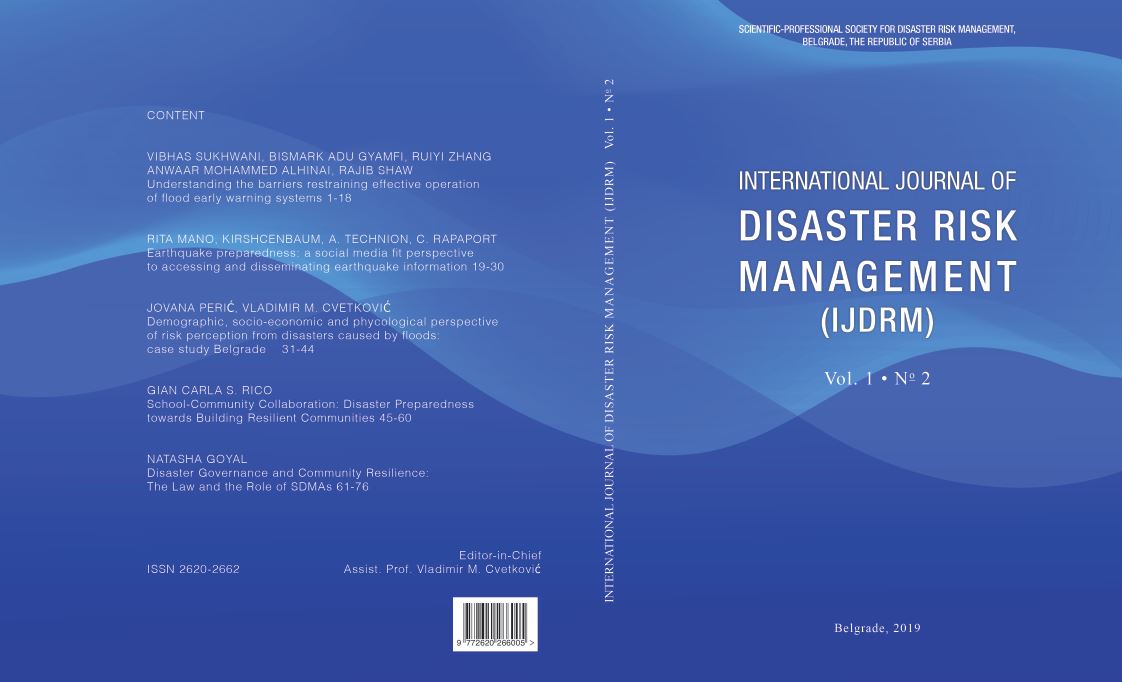Disaster Governance and Community Resilience: The Law and the Role of SDMAs
Disaster Governance and Community Resilience: The Law and the Role of SDMAs
Author(s): Natasha GoyalSubject(s): Politics / Political Sciences, Social Sciences, Geography, Regional studies
Published by: Naučno-stručno društvo za upravljanje rizicima u vanrednim situacijama
Keywords: Kerala State Disaster Management Authority; Community Resilience; Kerala floods; Vulnerability; Disaster Governance
Summary/Abstract: Disasters have become more profound in intensity and frequent in occurrence due to climate change. The unpredictable and devastating consequences of rising global temperature has raised the alarm bells for ‘rapid and far-reaching’ transitions in land, energy and urban governance. The recent devastation due to floods in Kerala in August 2018, has brought disaster governance to the mainstream in government accountability. Despite high performance on Human Development Indicators and social infrastructure, the failure of the state government in ensuring adequate preparedness and mitigation through capacity building has pushed back the development of the state by decades. Trust deficit in the face of administrative negligence and executive callousness hindered the translation of scientific information into understandable warnings for first line responders. The havoc was significantly man made as the local administration failed to regulate blatant violations of Coastal Zone regulations even after repeated warnings from Western Ghats Ecology Expert Panel report. The focus of state policy on human development has ignored the crucial aspect of ensuring active citizen participation in the development process. This has resulted in citizens becoming passive recipients of state entitlements, rather than active agents in a democracy. This paper is a critical view on disaster policies in India, which continue to ignore the decentralized institutions as crucial institutions in disaster management. The laudable role of fishermen in rescue and relief in the aftermath of Kerala floods clearly emphasizes that communities can no longer be ignored in the framework of disaster cycle. In a country which witnesses ubiquitous ‘regime of noncompliance’ to building bye laws, coastal zone regulations, land use plans and other safety laws, decentralized disaster management can help in building community resilience and ensuring accountability and transparency of government institutions. The argument gets underscored in a scenario where institutions of Disaster Management continue to focus on post disaster relief and rehabilitation, due to lack of enforcement powers of disaster management institutions
Journal: International Journal of Disaster Risk Management
- Issue Year: 1/2019
- Issue No: 2
- Page Range: 61-75
- Page Count: 14
- Language: English

